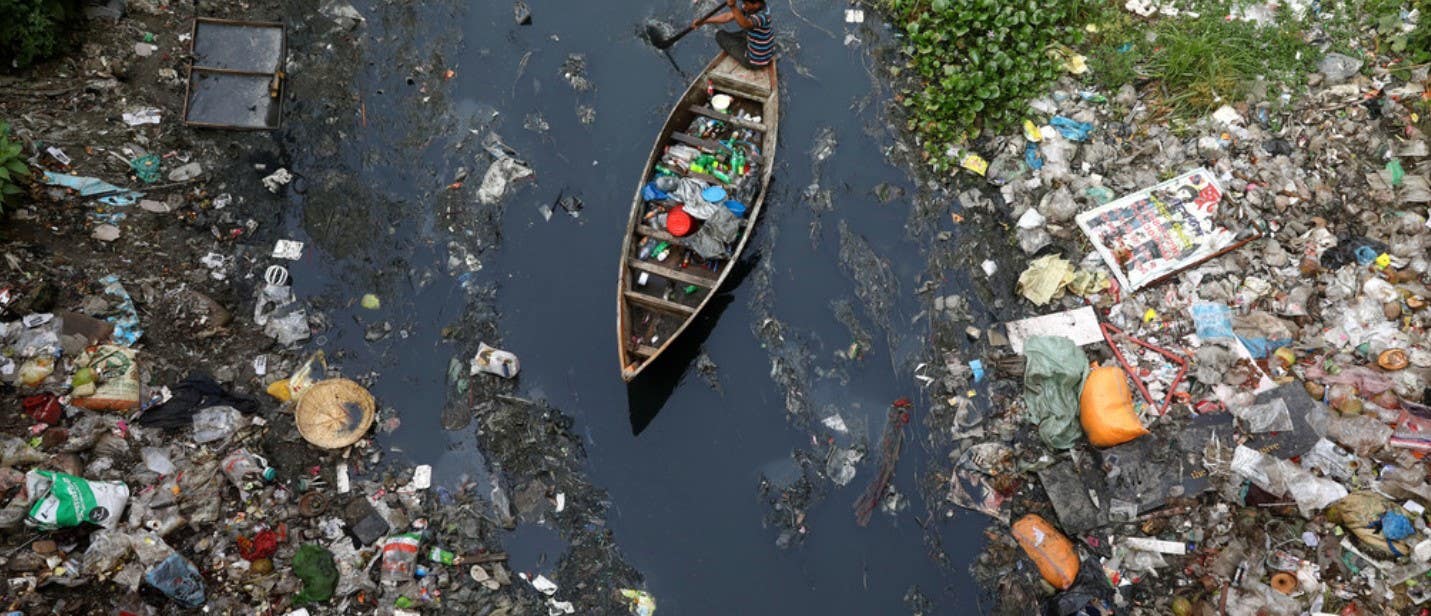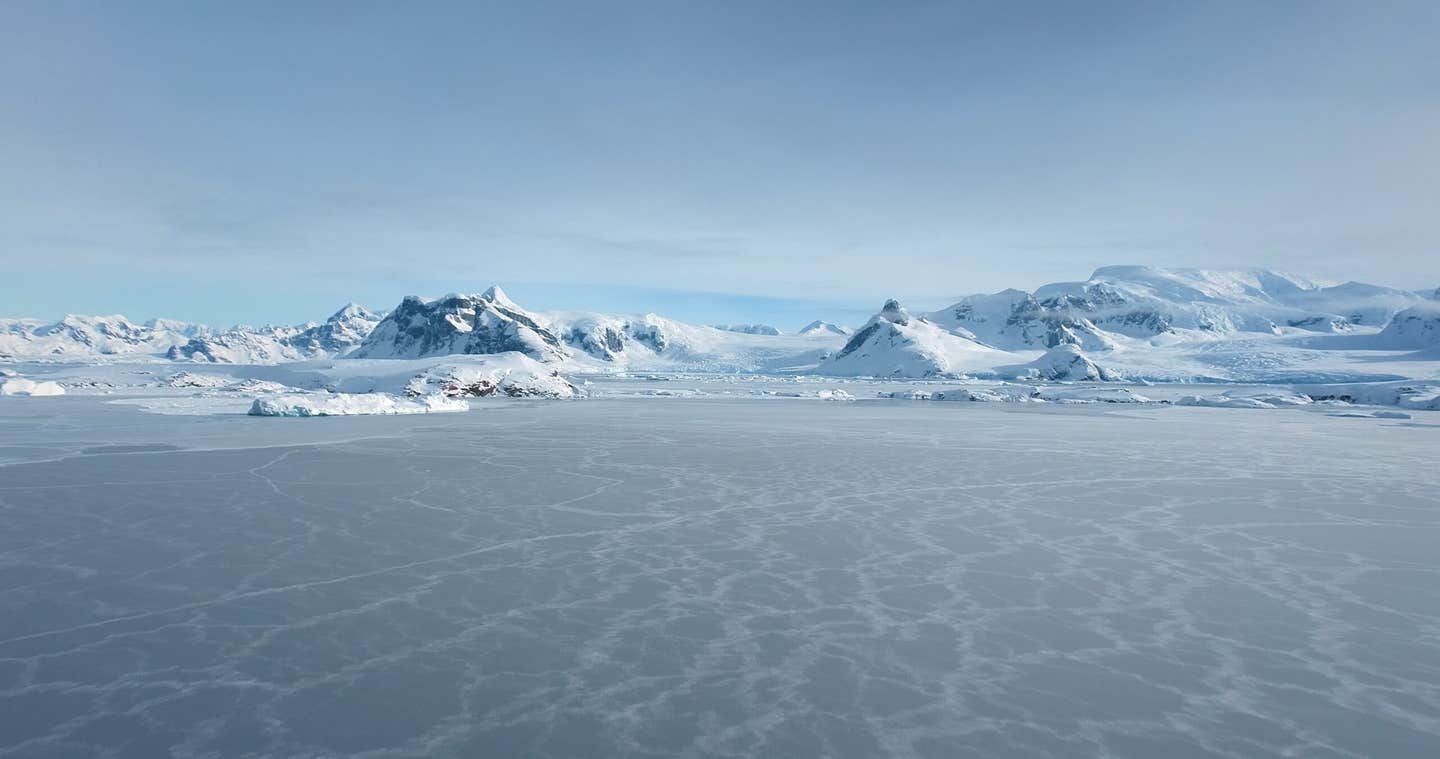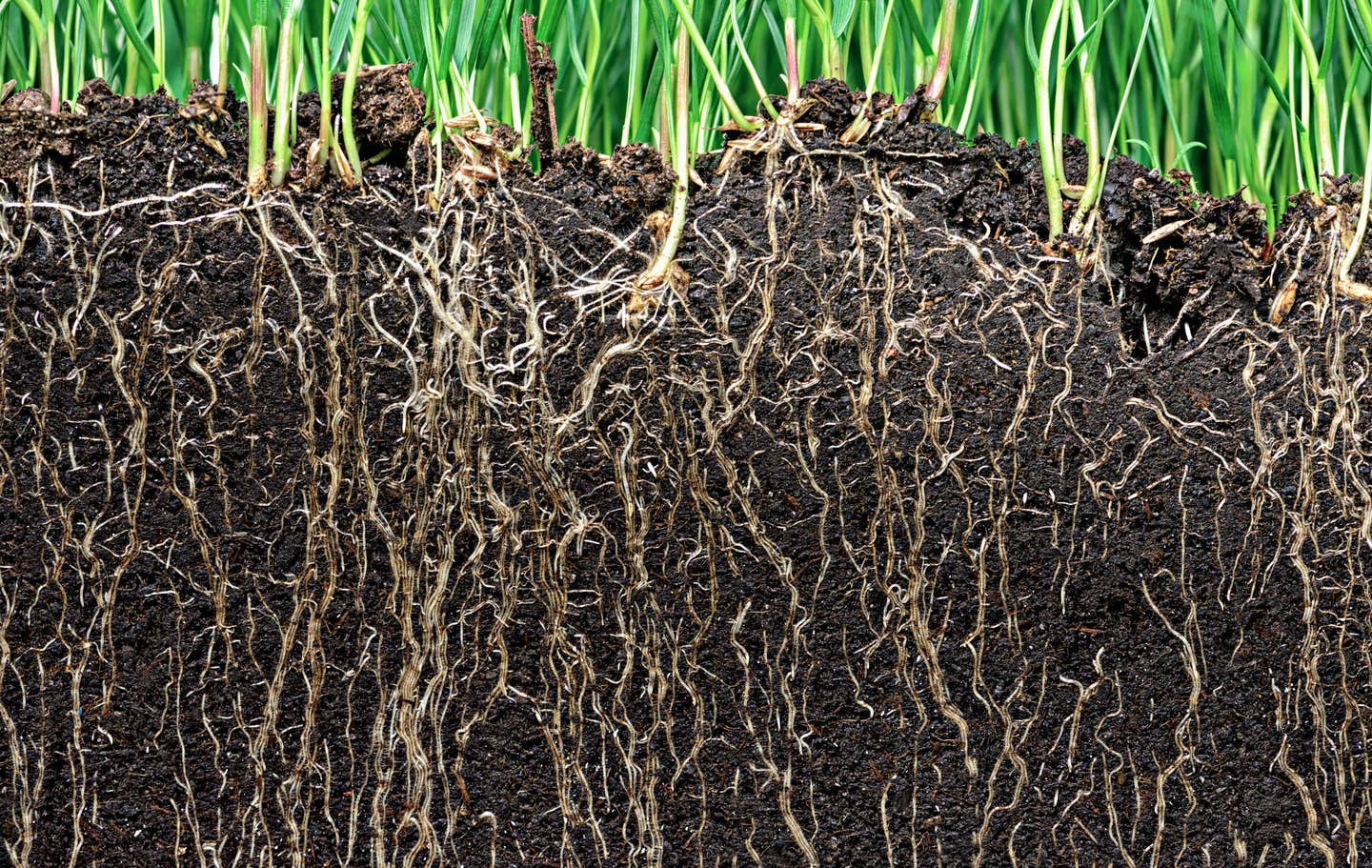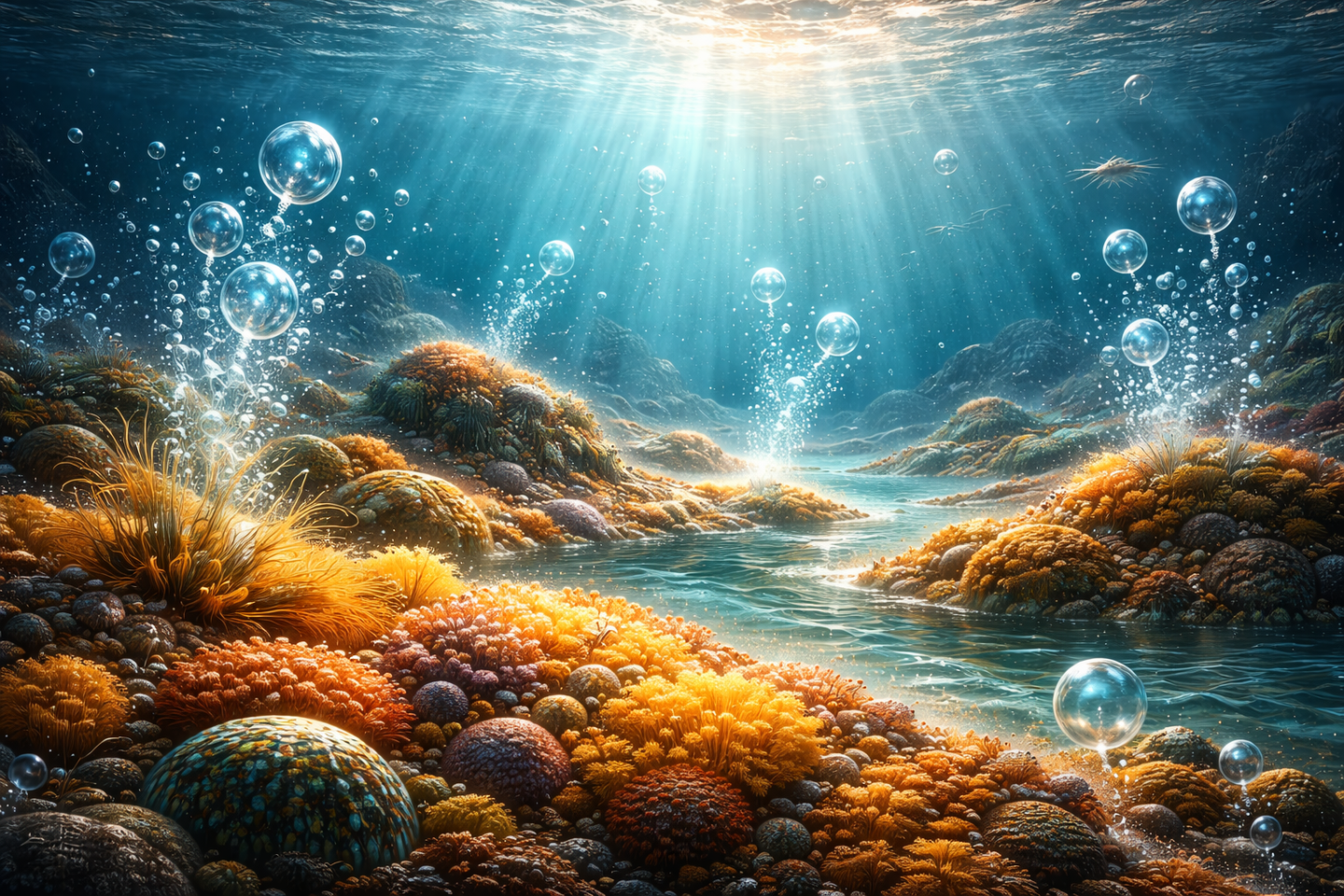How bubbles are being used in Amsterdam to catch canal plastic
wall of bubbles can intercept plastics in rivers and canals without blocking the passage of boats and marine wildlife.

[June 7, 2021: Rosamond Hutt]
The latest innovation to tackle plastic pollution? A bubble barrier.
A wall of bubbles can intercept plastics in rivers and canals without blocking the passage of boats and marine wildlife. Tests of a prototype in the IJssel river in the Netherlands found it stopped 86% of waste on average.
Now, the Dutch start-up behind the Bubble Barrier has teamed up with the municipality of Amsterdam and the regional water authority to run a three-year pilot of its technology.
It has just installed the first operational barrier in the Westerdok, at the end of Amsterdam’s canal belt, which empties into the IJ river and, eventually, the North Sea. The aim is to catch and collect plastic waste near the source, before it reaches the open sea.
Each year, at least 8 million tonnes of plastic ends up in the ocean – roughly one garbage truckload every minute.
With rivers transporting much of that plastic waste to the ocean, the Bubble Barrier could help address the problem further upstream.
How does the Bubble Barrier work?
The barrier is a perforated tube that sits across the bottom of a canal or river. Compressors pump air through the holes, creating bubbles that carry the waste as they rise to the surface.
The tube is placed diagonally to allow the natural current to move the waste to one side of the canal or river, where it’s caught by a floating platform and then removed.
The concept is based on existing technology: curtains of air bubbles have been used to contain oil spills and to reduce underwater noise levels around sea-bed construction sites.
Each year, Amsterdam’s garbage boats remove around 42,000 kg of waste floating on or near the surface of the city’s waterways, including large amounts of plastic.
It’s hoped the Westerdok barrier will capture waste deeper in the water as well as smaller pieces of plastic the garbage boats can’t pick up.
The collected waste will be analyzed by the Amsterdam-based organization Plastic Soup Foundation.
Like these kind of feel good stories? Get the Brighter Side of News' newsletter.
Tags: #Green_Good_News, #Plastics, #Recycling, #The_Brighter_Side_of_News



